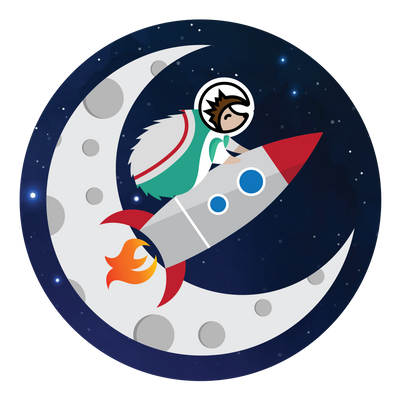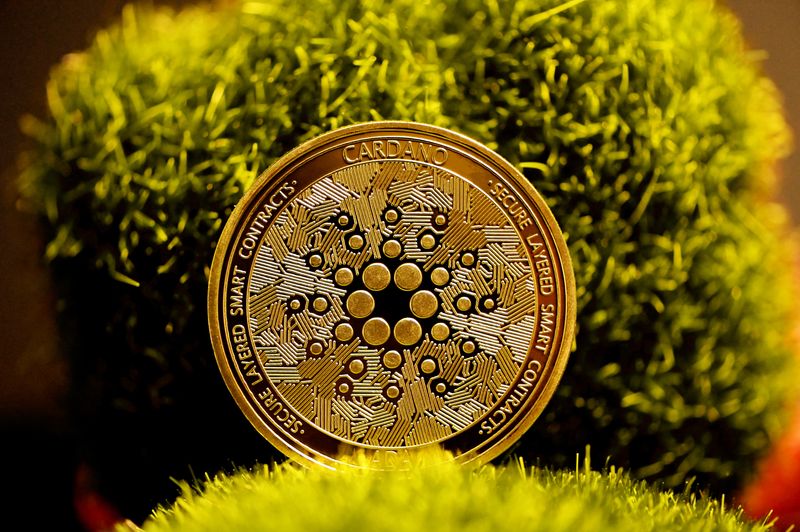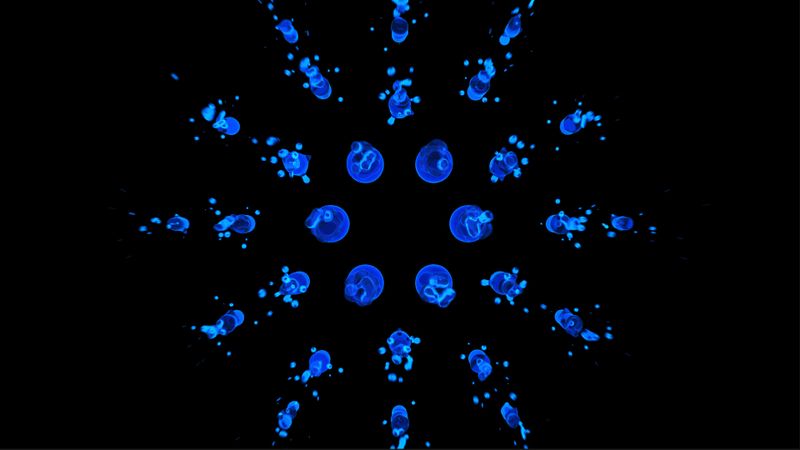Intrepid correspondent Ryan S. Gladwin attended the Cardano Summit with his eyes and ears open for key details. Here's what he discovered:
Organizers behind the cryptocurrency Cardano invited thousands throughout the world to gather in Wyoming, Zurich, and London, plus online, for the 2021 summit. This virtual event threw you into the metaverse, with a large landscape to explore and interact with other users. When setting up your profile, you gave your name, Twitter, and LinkedIn, which established a sense of community and encouraged networking at the event.
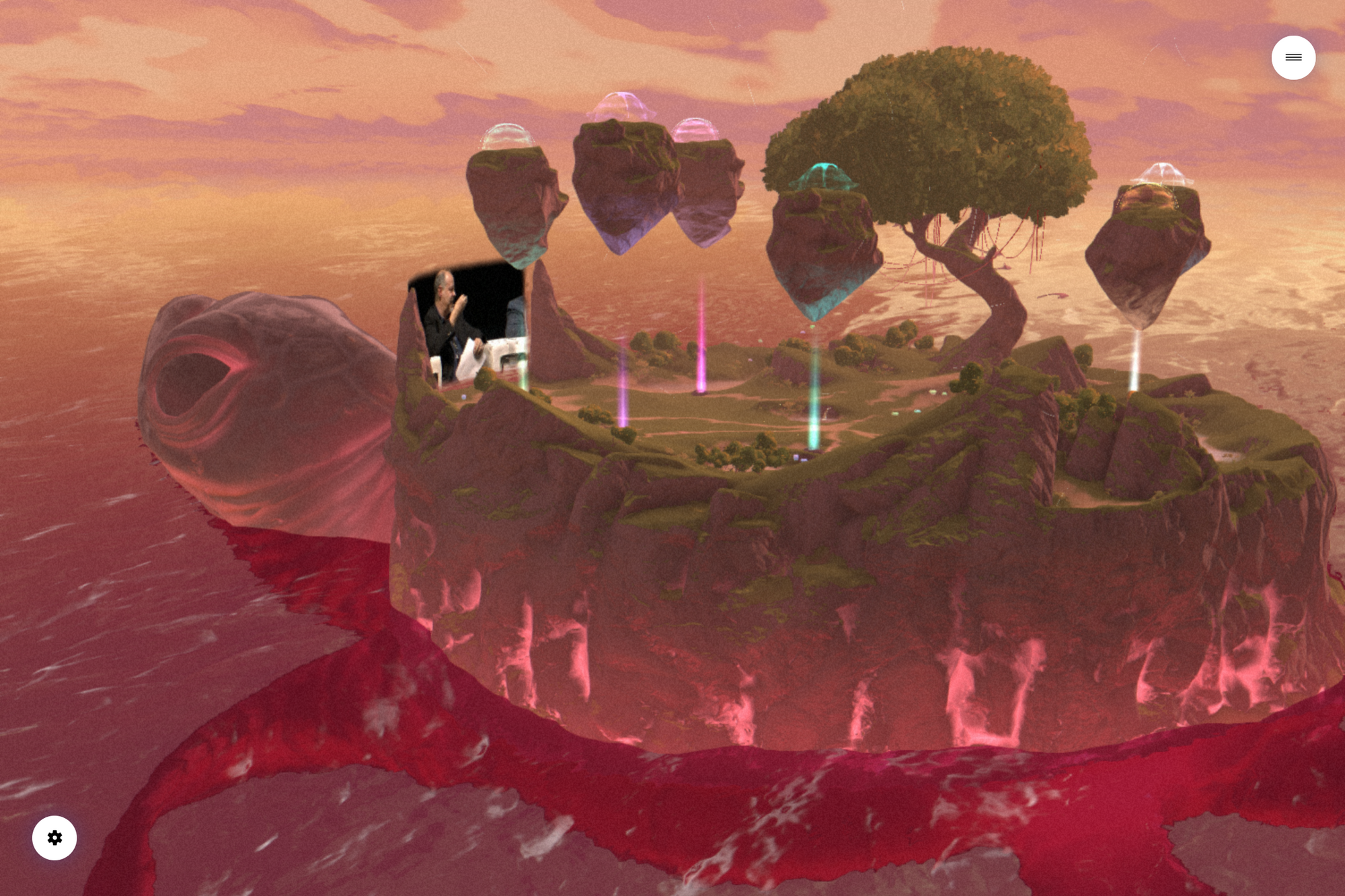
The utopian scenery was green, even mythical, sprinkled with flying stingrays and floating jellyfish. You soon realized that the island itself was actually a turtle swimming through the ocean. Andy Thelander, creative director at Active Theory, the company that designed the experience, later revealed that these decisions were inspired by Cardano's environmental friendliness.
The virtual space was divided into seven different worlds, each highlighting a topic being tackled at the summit:
- Cardano World
- Utility
- Governance
- Impact
- Adoption
- Community
- Catalyst
The latter two did not follow the normal scheduling of the rest of the event. Instead, they were a continuous stream of community projects promoting themselves and projects in the Catalyst system that are looking for funding (more on that later).
Charles Hoskinson, founder of Cardano, opened the two-day event with a talk about where he sees Cardano going in the future, what questions the crypto space should be asking, and why he is so optimistic about the future of Africa.
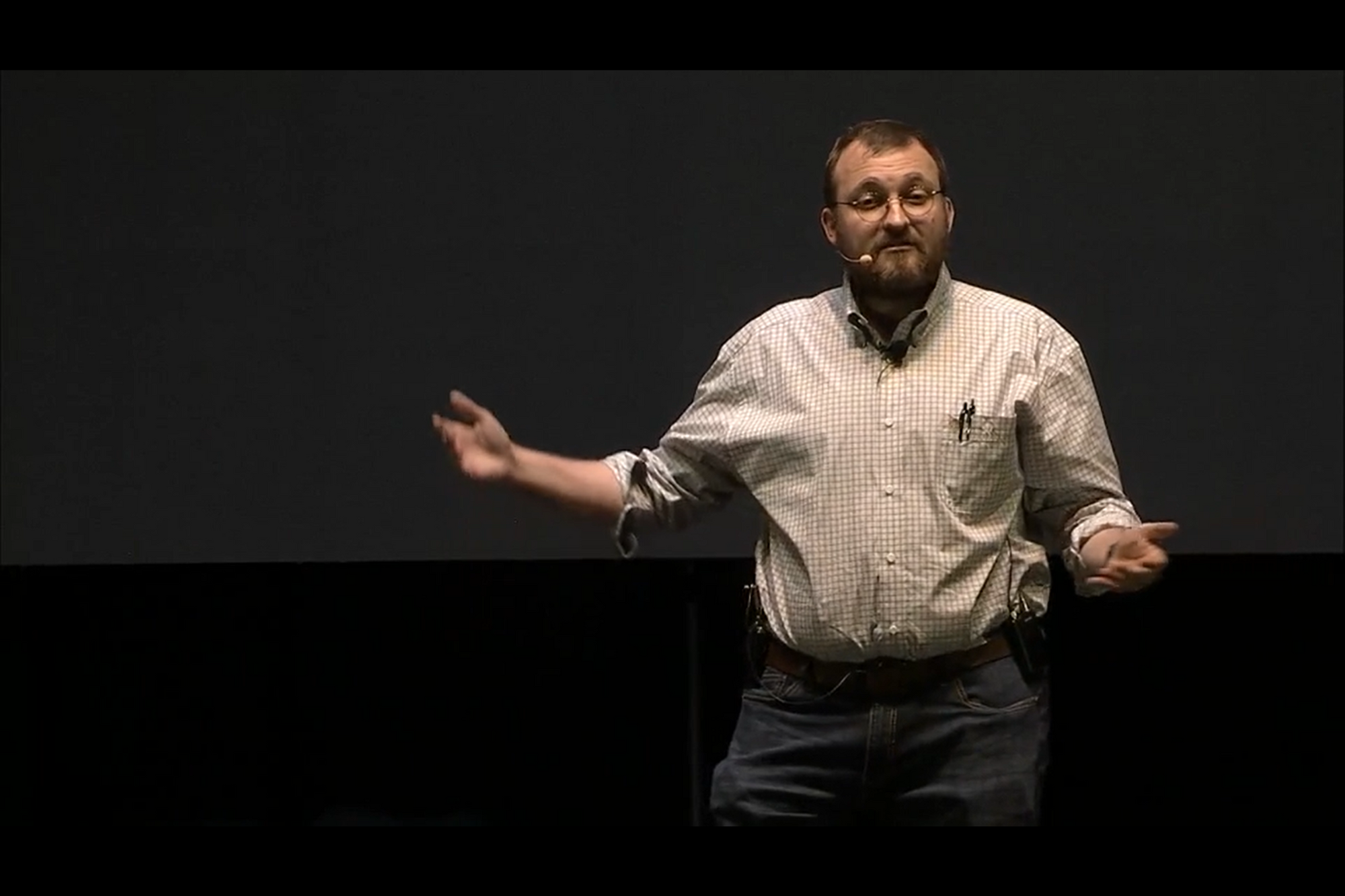
Cardano in Africa
"That entire continent is going through a massive upgrade," Hoskinson said, "and they have no brand loyalties." He envisions a future unencumbered by big-name corporations that rely on the nostalgia of familiar logos. Instead, consumers will flock to the best, most innovative companies.
IOHK, the company behind Cardano, has previously announced its partnership with the Ethiopian government. At the Summit, IOHK announced that they are investing $6 million into an innovation fund to help fuel growing blockchain companies in Africa.
Catalyst also provides support for African blockchain companies. Catalyst allows the community to decide what companies and projects get funded through a decentralized voting system. The expectation is that 300 projects will be funded by the end of 2021. By the end of 2022, they predict 4,500 projects will have received funding.
Ethiopian company IceAddis will work as part of the Catalyst system as an "accelerator pioneer." IceAddis will provide tools and mentoring to small and medium-sized African blockchain companies.
Charles Hoskinson said: "Give them billions of tools and they'll have a revolution. They'll build a better society than we have today. Hopefully, they'll build that on Cardano."
Primary Bond Market Opened to Developing Countries
A partnership between Oasis Pro Inc. and IOHK will see the development of a new trading system. The new system will use blockchain technology to open the primary bond market to developing countries.
The architects of Cardano's blockchain intend to remove the need for a middleman (e.g. banks) which will cut trading fees in half. The goal is to provide a viable alternative to primary bonds for governments of developing nations.
Pat LaVecchia, CEO of Oasis, said: "Developing nations often lack the access to overseas capital that other nations have. We want to ensure that this changes."
Atala PRISM Announcement
The partnership between Atala developer IOG and Acuant will provide identity checks on the blockchain to ensure a safer decentralized finance world.
The platform will have access to over 300 sanctions lists and watch lists to prevent bad actors from infecting the ecosystem. This not only will provide a safer decentralized ecosystem but it'll also create space for more third-party services, such as applying for a loan.
This is a response to global finance authorities applying more regulations to the DeFi space. It hopes that implementing know-your-customer (KYC) checks, it'll help authorities accept DeFi.
Atala PRISM is currently being rolled out to five million students and teachers in Ethiopia. It is also being deployed in Tanzania by the World Mobile Chain network, giving decentralized identities to mobile users.
The project will provide financial services to a population of people who have been disconnected from the global financial system up until now. Many people in developing countries are unable to prove their own identity and Atala PRISM attempts to fix that issue. Atala PRISM will be accessible via a Smartcard, mobile app, management consoles or a browser wallet.
Dynal Patel, chief product officer at IOG, said: "Having a verifiable identity credential could be a game-changer for the 1.7 billion people globally who currently can't prove their identity, because it will open up access to vital services like bank accounts and healthcare." This entire system will be built on Cardano's blockchain and is another step IOHK is taking to help the development of Africa.
It is also being used in Georgia by the Ministry of Education to provide students with verifiable education credentials when they graduate. Last but not least, it's being used in the US by Dish, again, giving decentralized identities to mobile users.
Dish + Boost Mobile Partnerships
Hoskinson described Dish as the "rebels" of the telecom industry, making for the perfect dance partner to bring together telecom and blockchain.
In this partnership, Dish aims to provide everyone with an identity stored on their mobile device. Allowing for the individual to own their identity rather than a company, like Facebook. Making individual's identities much more secure, being stored on the blockchain rather than a site's data base.
This idea of identity is a key value that IOHK runs through most of its projects.
Boost also aims to be the first telco company to embrace the loyalty program system seen used by airline companies. Paying bills, inviting friends and more will gain you points on this system for you to use outside of Boost such as purchasing ADA, cash or other third-party products.
Stephen Stokols, Boost CEO, said: "stay with Boost long enough and maybe you'll buy your house [through the loyalty system]."
ADA peaked around the time of this announcement at $2.45.
Chainlink Announcement
At the event, it was announced that Cardano blockchain will integrate Chainlink oracles to access real-time market data. Those already aware of Chainlink will know what to expect from this collaboration.
Chainlink aims to bridge the blockchain world to the off-chain world. Data feeds on sports, weather and more will be used to influence the blockchain environment.
One useful application of this could be using blockchain oracles to create an NFT that dynamically changes as, for example, a sports team competes in a tournament.
Sergey Nazarov, co-founder of Chainlink, said: "We're excited to leverage our extensive experience and expertise by establishing native support for Chainlink on the Cardano blockchain and supporting its next stage of growth into markets like DeFi and beyond."
Veritree Project
The Cardano Foundation are partnering up with Veritree, as part of "the first global Cardano impact challenge" — suggesting there may be more to come. This project aims to plant 1 million trees in order to reduce their carbon footprint by four times.
The way the system will work is: once you have donated 15 ADA, you will receive 15 Veritree tokens. Each Veritree token can be swapped with an NFT tree certificate, featuring the details of the planted tree you funded. Larger donors will be able to unlock collectable badges, rare digital art and naming rights within the virtual Cardano Forests as they are planted.
One Light Wallet to Rule Them All
The summit also brought news of the next generation of blockchain wallets — light wallets. An easy to navigate, mobile phone app that will enable users to access the blockchain without the need for internet access. This will be the first-ever blockchain wallet to have the ability to carry out transactions, hold NFTs, vote and more.
This feels like a big step into making blockchain technology accessible for the general public. A demo of the Project One wallet was shown and it even included a education section to help newcomers have a smoother blockchain experience.
dApp Store
On light wallets, you'll also find the dApp (decentralized application) store. Just like the Google Play Store or Apple's App Store, this will be an easy to access hub for apps to be uploaded.
The difference, however, is that it is completely decentralized. Meaning no chance of your app being removed because it competes with an Apple product or violates the terms of service. IOHK has described the dApp Store as the "storefront" for Cardano.
They have implemented a certification program that will ensure users about the behavior of dApps — preventing malicious dApps from spreading. dApps will not require certification to be added to the store but users will see that a dApp doesn't have it and may steer clear.
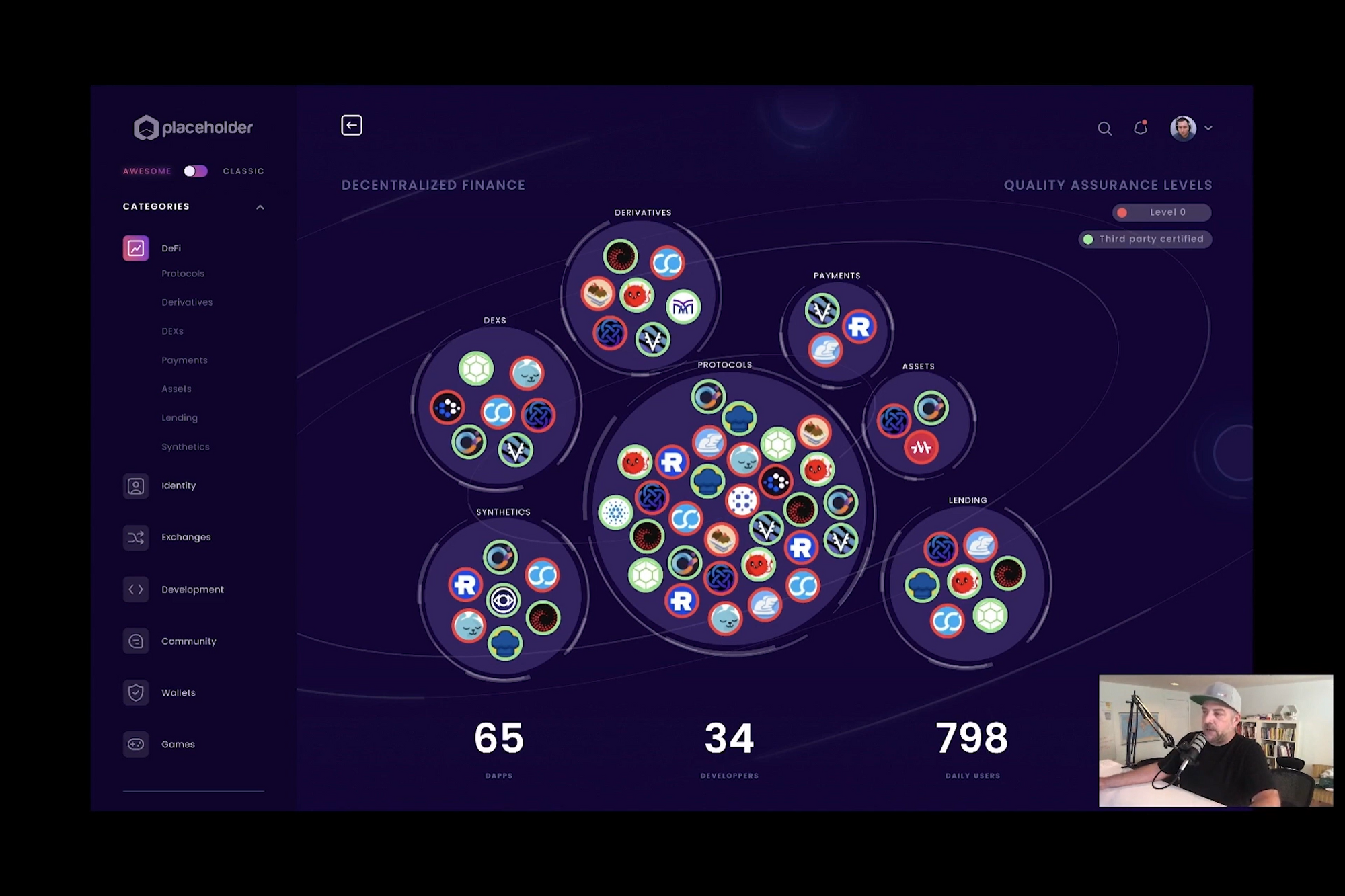
Voting System
A lot of the summit was spent discussing the correct terms of governance — they literally had a whole island named after it. One key way they have tackled the topic of governance is by revolutionizing the voting system within the Cardano ecosystem.
Cardano holders have the power to vote on how the treasury is spent — more staked ADA, more voting power.
The vote is done through liquid democracy. Where voters can either vote themselves on a topic or delegate their vote to an "expert" (anyone can qualify for this role).
Rather than voting by checking a simple box, voters can submit statements that will allow users to make more complex decisions when voting. For example, you can decide that if two experts vote for the same thing, you will also vote for that thing, otherwise abstain.
Voting is done through a two-stage system. The first is the "priority round" where voters will make a shortlist of what projects they care the most about. The next round is the "approval round." Now that the agenda has been shortened, voters will simply vote yes or no on policies. Once a policy meets a threshold, the policy will be funded.
Grace the AI Robot, Helping the Elderly
Grace, the AI Robot, is designed to care for and diagnose the elderly. The robot was built in response to frontline staff being understaffed during the height of the pandemic.
The robot has a plethora of impressive features such as a thermal camera to take a patient's temperature, being able to mirror emotions and the ability to express empathy.
The AI modules that run Grace are being moved to the Cardano blockchain. This has been done to increase the levels of security and data privacy needed to meet global healthcare requirements. Cardano was also chosen due to its speed and scalability, allowing Grace's brain to operate as quickly as necessary.
There are plans to deploy Grace across the US, Hong Kong, China and Korea next year.
Rival eSports Partnership
A partnership with esports platform Rival will see NFT marketplaces, fan rewards and more be developed in the Cardano ecosystem. NFTs will be created and distributed based on the royalties within the Rival platform.
This will include content around the NFL's Seattle Seahawks, NBA's Detroit Pistons and the EPL's Aston Villa and Watford.
Matt Virtue, CEO of Rival, said: "Our partnership with Cardano marks Rival's entry into blockchain and is a significant step in our evolution as an enterprise platform solution to unlock the unlimited potential in gaming and esports."
Djed Stablecoin
The final announcement of the two-day summit was Djed: Cardano's first (and long-awaited) stablecoin.
Being released on the COTI platform, the stablecoin will use smart contracts to secure a stable price while being pegged to fiat currency (USD). It will keep a reserve of base coins while minting and burning stable assets and coins to ensure price stability.
As is the nature of stablecoins, this will make transaction costs more predictable. This will help transition Cardano into real-world application as it will prevent any nasty surprises when you realize ADA went up 10% during your walk home from the shops.
Message Sent, Message Received
Cardano Summit 2021 wasn't perfect. The virtual world was laggy at times, the captions rarely worked and some of the speakers weren't the best. However, a message was sent.
The two days laid out the manifesto to a utopian world of no corruption, equal rights, NFTs, and flying stingrays. At times, it felt like the scope was set too wide, radical ideas and grueling issues were tackled every hour. Is the world IOHK hopes to create with Cardano unrealistic or the next best thing? Too utopian? I'm unsure, but I'm looking forward to finding out.
Charles Hoskinson left saying: "The message we want you to leave with is: we're just getting started."
If you enjoyed this piece, check out Ryan's website, follow him on Twitter, and of course subscribe to the weekly Hedgehog newsletter!

